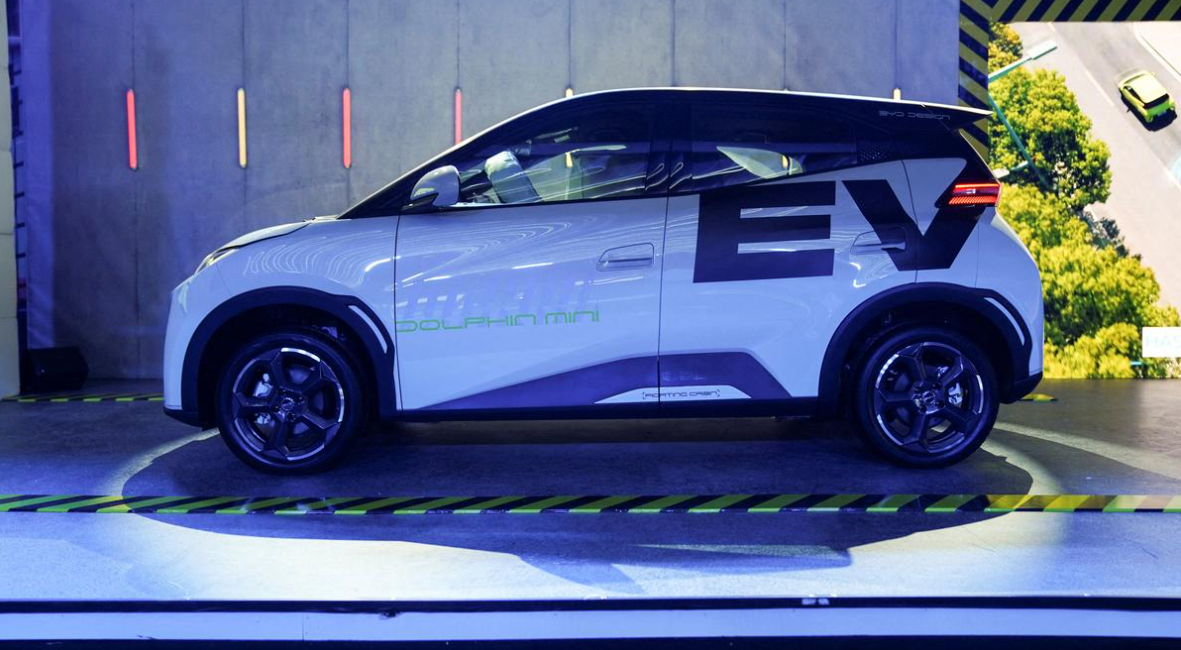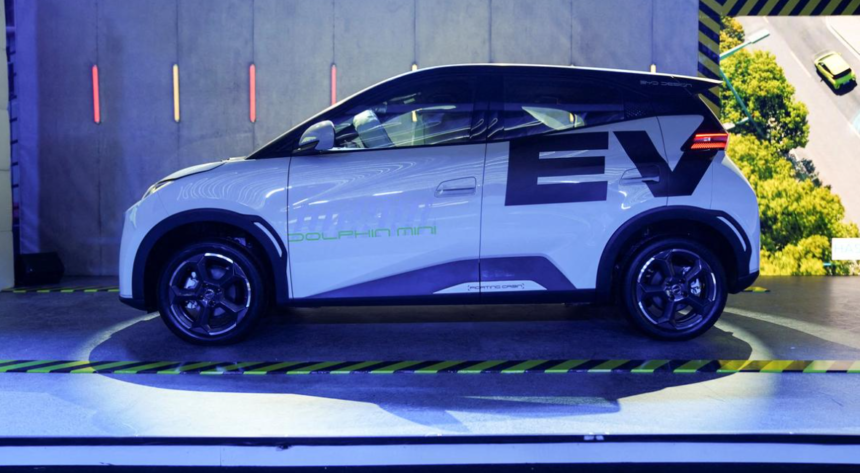As electric vehicles (EVs) gain traction across the globe, concerns surrounding cybersecurity, particularly those stemming from foreign manufacturers, have surged. In the United States, the Biden administration has raised alarms regarding Chinese EVs, fearing that they may pose national security risks. This blog explores the rationale behind these concerns, analyzing the cybersecurity implications of Chinese EV technology, the geopolitical context, and the broader impact on the automotive industry.
1. The Rise of Electric Vehicles and Their Significance
The global shift toward electric vehicles is accelerating due to rising environmental awareness, stricter emissions regulations, and advancements in battery technology. According to the International Energy Agency (IEA), global EV sales reached 6.6 million in 2021, a 108% increase from the previous year. This rapid growth is expected to continue, with projections indicating that EVs could account for over 30% of global car sales by 2030.
In the United States, the Biden administration is heavily investing in the transition to electric mobility as part of its broader strategy to combat climate change. This has led to a competitive landscape where numerous manufacturers, including traditional automakers and new entrants, are racing to develop and deploy EVs. However, as the market expands, so do the complexities associated with the technology powering these vehicles, particularly concerning cybersecurity.
2. Understanding the Cybersecurity Landscape in EVs
Electric vehicles are equipped with advanced software and hardware systems, including connected technologies that enable features like real-time navigation, remote diagnostics, over-the-air software updates, and autonomous driving capabilities. These innovations enhance user experience and vehicle efficiency but also expose vehicles to potential cyber threats.
Cybersecurity concerns in the automotive sector are not new. The U.S. Department of Homeland Security and the National Highway Traffic Safety Administration (NHTSA) have long recognized that vehicles can be vulnerable to hacking and data breaches. Attackers can exploit weaknesses in vehicle software, potentially gaining control over critical systems like steering, braking, or acceleration. The proliferation of connected vehicles only heightens these risks, necessitating robust cybersecurity measures to protect consumers and the national infrastructure.
3. The U.S. Government’s Concerns Over Chinese EVs
The Biden administration’s apprehensions regarding Chinese electric vehicles stem from several factors:
3.1. Software and Data Security
Chinese EV manufacturers, such as BYD and NIO, are rapidly expanding their presence in global markets, including the U.S. These vehicles often come equipped with advanced software systems that collect and process vast amounts of data. The U.S. government is concerned that this data could be misused, whether for espionage, surveillance, or other malicious purposes.
The possibility of the Chinese government gaining access to sensitive information through Chinese-made EVs raises alarms about data privacy and security, particularly for government officials and critical infrastructure users who may rely on these vehicles.
3.2. National Security Risks
The geopolitical context further complicates the relationship between the U.S. and Chinese EV manufacturers. Heightened tensions between the two countries, particularly concerning trade and technology, have fueled suspicions about Chinese firms’ intentions. The U.S. government views the integration of Chinese technology into American infrastructure as a potential threat, especially given China’s history of state-sponsored hacking and cyber espionage.
3.3. Past Incidents of Cyberattacks
Historical incidents of cyberattacks on U.S. corporations and government systems by Chinese hackers have further solidified these concerns. The SolarWinds cyberattack, which affected numerous U.S. federal agencies, is a stark reminder of the vulnerabilities inherent in interconnected systems. With the automotive sector increasingly relying on interconnected technology, the risks posed by foreign manufacturers become even more pronounced.
4. The Response from U.S. Automakers and the Automotive Industry
In response to the government’s concerns, American automakers and industry stakeholders are taking proactive measures to enhance cybersecurity and safeguard their vehicles against potential threats:
4.1. Investment in Cybersecurity
Major U.S. automakers are ramping up their investments in cybersecurity research and development. Companies like Ford, General Motors, and Tesla have established dedicated teams to assess and address vulnerabilities in their vehicle systems. By implementing robust security protocols, automakers aim to build consumer trust and ensure compliance with regulatory standards.
4.2. Collaboration with Government Agencies
The automotive industry is increasingly collaborating with government agencies to develop comprehensive cybersecurity frameworks. Partnerships with the Department of Homeland Security and the National Institute of Standards and Technology (NIST) have led to the creation of guidelines for securing connected vehicles. These collaborative efforts aim to mitigate risks associated with foreign-made vehicles and bolster national security. 
4.3. Legislative Measures
The U.S. Congress has also been active in addressing cybersecurity concerns in the automotive sector. Recent legislative efforts have sought to establish stricter cybersecurity requirements for all vehicles, regardless of manufacturer origin. Such regulations aim to ensure that all automakers adhere to consistent cybersecurity standards, fostering a safer environment for consumers.
5. The Global Perspective: Cybersecurity Beyond Borders
The concerns surrounding cybersecurity in the EV sector are not limited to the United States. Countries worldwide are grappling with similar challenges as they navigate the complexities of interconnected automotive technology.
5.1. International Standards and Regulations
Efforts to establish international cybersecurity standards for vehicles are underway. Organizations such as the International Organization for Standardization (ISO) are developing guidelines to ensure that manufacturers adhere to best practices in cybersecurity. Collaborative initiatives among countries aim to create a unified approach to vehicle security, enhancing the safety of global consumers.
5.2. The Role of Cybersecurity Firms
As the automotive industry faces increasing cybersecurity threats, specialized firms are emerging to provide solutions. Cybersecurity companies are developing tools and technologies to identify and mitigate vulnerabilities in vehicle software. Their expertise is crucial in helping automakers address emerging threats and protect consumer data. 
6. The Future of Chinese EVs in the U.S. Market
The future of Chinese electric vehicles in the U.S. market remains uncertain, largely influenced by the cybersecurity concerns raised by the Biden administration. Several factors will shape the trajectory of Chinese EVs in the American landscape:
6.1. Regulatory Scrutiny
As the U.S. government intensifies its scrutiny of foreign EV manufacturers, Chinese companies may face increased regulatory hurdles when entering the market. Stricter standards and requirements may limit their ability to compete on an equal footing with American automakers.
6.2. Consumer Perception
Consumer perception of Chinese EVs will play a pivotal role in their success. Trust in the security and reliability of these vehicles will influence purchasing decisions. Manufacturers that prioritize cybersecurity and transparency may gain a competitive edge, while those that do not address these concerns may struggle to gain market share.
6.3. Technological Collaboration
Despite the concerns, there is potential for collaboration between U.S. and Chinese companies in the EV sector. Joint ventures and partnerships could facilitate the sharing of expertise and technology, ultimately benefiting both parties. However, such collaborations will require careful consideration of cybersecurity measures to address national security concerns.
7. Conclusion: Balancing Innovation and Security
The U.S. government’s concerns over Chinese electric vehicles highlight the intricate balance between fostering innovation and ensuring national security. As the automotive industry continues to evolve, addressing cybersecurity risks must be a priority for all manufacturers, regardless of their origin.
While the fears surrounding Chinese EVs are justified given the geopolitical landscape, it is essential to recognize that cybersecurity is a shared responsibility. American automakers must remain vigilant in safeguarding their vehicles, while regulatory bodies must implement robust frameworks to protect consumers. By prioritizing cybersecurity, the automotive industry can pave the way for a safer, more innovative future in electric mobility.
Ultimately, the successful integration of electric vehicles into the American market hinges on trust—trust in the technology, trust in the manufacturers, and trust in the systems that govern them. As the industry navigates these challenges, the lessons learned will shape the trajectory of electric mobility for years to come. ALSO READ:-Dasara Melavas and Maharashtra Politics: Significance of the Shiv Sena and RSS Rallies in a Poll Year 2024





